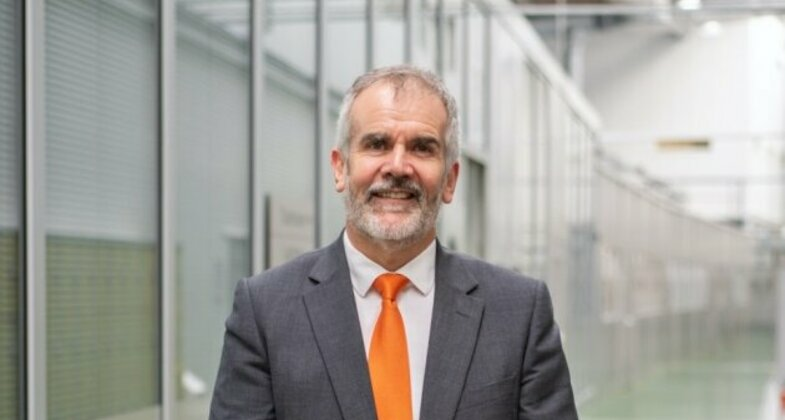The CEO series: Five minutes with…Bill Williams, CEO at CEME
Bill Williams developed his career in sales, marketing and strategy within the engineering and manufacturing sectors before going on to become the first CEO of Hethel Innovation, a Business Innovation and Skills centre. He’s now CEO at CEME (Centre for Engineering and Manufacturing Excellence) where his Business Campus in East London is home to 103 businesses. Bill has spent the last 15 years helping start-ups and small businesses grow in their early years and sees challenge and opportunity in the months ahead. Berwick Partners’ Ashley Crich spoke to Bill about how CEME have dealt with COVID-19 related challenges and what he thinks the future will look like for business.
The extraordinary circumstances and severe challenges that we are all currently facing are enormously impactful for everyone, everywhere. However, can you identify the key and immediate impact on your business since the COVID-19 outbreak in the UK?
It’s been quite unbelievable, within the space of a couple of weeks all commercial activity stopped, our conferencing centre went from slowing to closed in five working days. We’ve had to learn to lead and work remotely at a pace and speed that was unthinkable, we’ve gone from a being an organisation who interacts and supports its customers on a face-to-face basis, to one that still needs to support customers in the same way from a remote operating model. I would have expected something like that to take years, not days, to implement.
What immediate changes did you make to protect your business and ensure survival?
The thing that surprised and pleased me most; it was the first week in March and we decided to put together a response team, it was the operating board, senior executives and me, we agreed three fundamental things:
- Keep the campus open within the parameters of health and safety.
- Delegated authorities don’t exist; decentralise control and decision making in a way that was compliant with health and safety first, and exceeding customer expectations second. Most importantly, act fast.
- There were, and still are, literally thousands of information sources. We agreed the primary source of information will be the UK Government, all key actions and decisions would be made on this foundation. Other sources will be relevant but for speed and consistency, but actions would be based on the current advice of UK Government only. Having a small number of information sources has definitely saved us a lot of time and energy.
Given the benefit of hindsight would you have done anything differently?
I think we reacted to what was happening around us very quickly. We made sound decisions based on the information that we had at the time and I think most of them were the right ones. We should have been quicker to apply for the government loans; it would be good to be as high in the queue as possible.
What are your thoughts on the support provided by the government? Has it been enough / relevant for your business?
The government is doing a fantastic job in unbelievable circumstances; like it or not unemployment will increase, business failure rate will increase, the market is ceasing to trade and the government is trying to do its best to mitigate the fact the country has been shut down, it’s inevitable their interventions will not satisfy all but no government could prepare for this. When you look at the scale of borrowing and liquidity that is being pumped into the economy it would be bit harsh to say that the government isn’t doing enough. Your business plan should aim to get through this without government support and the support is an upside.
Do you agree that ’business will look different’ and there will be a ’new normal’ when we return to work trading, and what do you think the new normal will look like for CEME?
There will be some changes, but I think we’re creatures of habit and we’ll return to a very similar way of working quickly. I think commerce will retain a very similar pattern and we’ll look back at this with a sense of shock at what was, but I think 07/08 has taught us that business will return to a similar shape surprisingly fast. There will be some sectors that are clearly worse hit than others, leisure being one.
Do you see any short-term opportunities for CEME when things return to normal?
Yes, I think a lot of businesses will seek to capitalise on the cost benefits associated with a new workforce proven more capable of working from home. The impact of this will in my view see an increase in the demand for smaller and more flexible working spaces as businesses seek to downsize on their current facilities and make the savings that could be required to keep trading. Our proximity and access to London should be very appealing, I think particularly for those looking for access to the Olympic Park, Stratford, Canary Wharf we can provide some excellent flexible options.
If you could offer any peace of mind or advice to your peers (CEOs in similarly scaled businesses) on how to deal with this situation and prepare for the future; what would it be?
Without wanting to sound like a management consultancy book, and I think those that have been running business for ten years or more probably don’t need my advice. For those who haven’t led a business through a major economic event before; firstly – take care of yourself, are you sleeping, eating and exercising? All are critical. Secondly, do you have a mentor? Someone you can talk to who is not on the board? If the answer to these points are no, the single most important piece of advice I can offer would be work on those.
Finally, keep going. I was a sales director in 1997 and relocated to Singapore to set up a commercial operation, it coincided with the East Asian Tigers crashing, the exchange rate plummeted by 80%, and yet within a year we were back to near normal which seemed impossible at the time. In 2000 we had the dot.com crash, I was coming out of business school and couldn’t see a career ahead, within a year it had passed. The financial crash of 2007/08 is well documented, that passed, so will this, keep going, use positive language and be optimistic; we will come out of the other side.
For more information, please contact Ashely Crich, principal consultant in our Finance practice.






